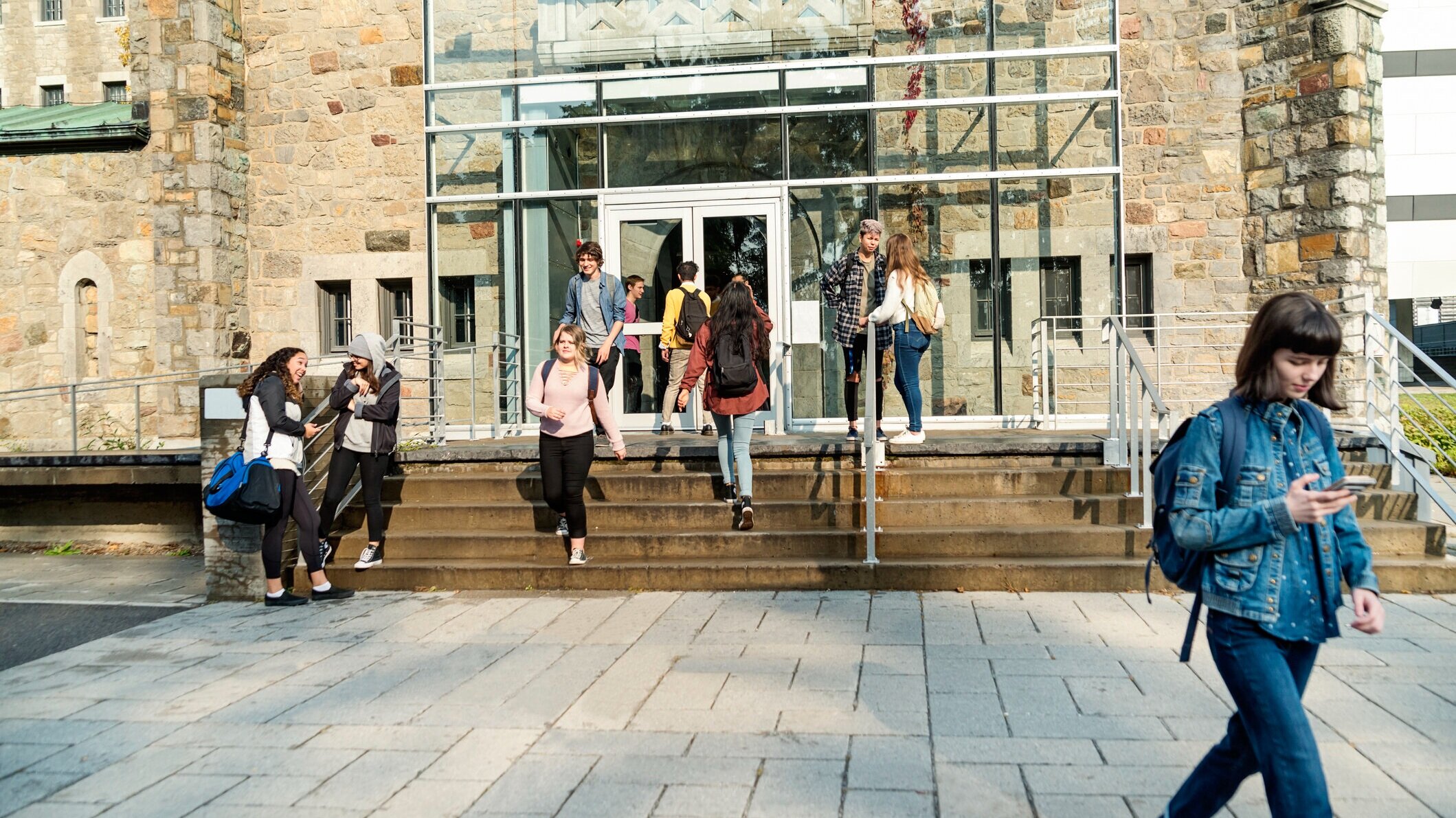Perspectives on leadership in Academia with Professor Sir David Eastwood, Vice Chancellor of the University of Birmingham
Perspectives on leadership in Academia with Professor Sir David Eastwood, Vice Chancellor of the University of Birmingham
In this series of interviews with prominent leaders in Academia our colleague Owen Francis discusses various aspects of leadership in these current times.
Watch the interview
Below follows a transcript of our interview
Can you tell me how you have handled this past year of pandemic both institutionally and personally?
I was in Hong Kong January 2020 and they were beginning to report something wrong in Wuhan and I remember reading the reports and thinking ‘whilst this is significant it probably won’t impact us here in the UK’. So it’s been a year that none of us anticipated and none of us had planned for. I reflected on that and the fact that we hadn’t planned for it is probably advantageous. If we’d thought there was a playbook for the pandemic, we’d have all reached for it, and ran our businesses according to it – and it wouldn’t have worked. I think we did better because we were responding to events and unprecedented circumstances.
I think we all did similar things in March/April 2020. We moved all or most of our businesses online, that was true for the University of Birmingham and the major pension scheme I was chairing at the time. In most organisations that worked well, and we were all surprised at the resilience of our organisations and the speed and imagination that was used to pivot. I think the challenge that we all had then and the challenge that we still live with is: how long will this go on and when will the future start? I think most organisations thought that it would only last 6 months until we resumed conventional operations. I think that because it hasn’t played out like that has created a series of other problems.
We are a year in – I think organisations are tired, people are tired. Early on we ran on the accumulated capital of working face to face. We knew the people we worked with and we engaged with and we could do so virtually. By the autumn not only was this method of communication somewhat desiccated but we started to see what we were missing. It is hard to be creative, its hard to deal with situations that are complex and subtle. Essentially digital meetings are transactional and work well for that, but we were missing the buzz, and starting to see the consequences of people’s exhaustion as well as the impact on people’s home and domestic circumstances. Home schooling, caring responsibilities, personal fragility, all these things were taking their toll.
A year on and we are starting to look to what the future holds and what it is going to take to if not thrive, then simply survive.
How does one lead visibly during these times? Do you feel your role has become more constrained?
In my role as Vice Chancellor of one of the largest Universities in the country, quite a lot of what I did, I ceased to be able to do. A lot of it was out on the road and being the public face of the university. At the same time, I think the organisation became more reliant on me and my example – that ‘yes we can’ approach which is important.
I made a call in lockdown one to be as present on campus as much as possible, to talk to the people who were still coming in and at that stage not knowing the level of risk they might be taking. I think it was important that the Chief Executive was seen to be there and seen to be supportive and seen to be appreciative. I think it is important to have that sense of connection, lest the situation starts to feel more of an exercise than a reality. Being seen to be confident about how we would take decisions rapidly was also important and also empowering the team.
This is not about heroic leadership; this is about the team stepping forward. I’m fortunate in that I have been leading the university for twelve years and I know a lot of people in the university. The pandemic made you quite dependent on a lot of people in the middle of the organisation. I think if you were new to an organisation, it would have made it harder to know what people’s capabilities were and whether they were really up for this. Whereas when you really know the organisation and its DNA then its easier to make decisions. Getting the communication right has also been important.
I remember years ago I read a report on the Christchurch earthquake and the damage on its university – they handled it really well. The thing that they found the hardest was communicating when there was nothing to say. That was with me right at the beginning, I knew that colleagues would want to know where they and the organisation were. Is their job secure, right through to how could they be useful? So we spent a lot of time working on communications, and I think that made a big difference in an organisation with 8.5K staff and 36K students to give them the security of knowing that the university is ok and giving them an understanding of what they can contribute
What organisations value in leadership appears to have changed. Has Covid made us value more empathetic or resilient leaders?
I certainly think it has placed a high premium on resilience and being empathetic. Different leaders draw different things. I’ve been in major leadership roles in higher education for over 20 years now, and its interesting how much you find yourself drawing on that hinterland of experience. I think one of the challenges that leadership groups have now is that their organisations are tired, people are tired and delivering on daily basis is still a real challenge. Organisations are running hot, there’s not much spare capacity, if any.
On the other hand, I think it is imperative that leaders are thinking about what’s next? What is the future going to look like? Communicating that is really quite hard. I know that if this university does really well post the pandemic, then we will benefit from that for a decade. If we get ot wrong or we are slow than we will pay the price for that. One of my responsibilities as leader is to try to think through with my leadership team, the priorities for the future, think through the strategy, what will persist from our new ways of doing things. What will research look like? What will higher education look like globally post pandemic? Then communicate that with our colleagues in a way that is reassuring and not further destabilise.
What advice would you give to prospective leaders about to step up? Is there anything that Covid has changed for them?
All of the organisations I’m working with, so not just in higher education, have discovered that they can do things much more quickly than they ever thought, and that means that in future the pace of change will be more rapid. The facility and ability to change will be greater and that is both an advantage and a risk. ‘How will I win hearts and minds?’ will probably be a less important question in the future but the potential for making a mistake greater.
The fundamentals still matter, if you are going to lead a university like Birmingham, this is a place of education and research so don’t take your eye off the ball. If you are not an excellent university for research or you are not a wonderful place of education, then those things will come back to bite you and you will be found out downstream.
A colleague of mine left Birmingham to become Provost Chancellor at another university and as she was leaving, we were chatting and she said “The most important thing you ever said to me David was in a leadership development meeting when you said it was no part of your job to tell anyone how hard your job is.” I’d forgotten I’d said it, but I think there is a sort of self-denial in leadership, you can’t indulge yourself. Your organisation is looking to you as its leader and that is slightly different to looking at you as a person. If you complicate that by allowing yourself to get in the way, then that’s never great for the organisation. As stressed and as stretched as organisations are now, the needy leader is the last thing they can cope with.
If you are thinking of stepping up, the question you should be asking yourself is ‘is this the right role for me? Is my ambition well matched to my ability? Is this the right time? Am I the right kind of leader for a pandemic? Am I the right kind of leader for the recovery from a global crisis? Or is my particular skillset better suited to different times?’ That is not a statement of failure or weakness, it is a recognition that different times require a different formula of leadership skills.
Your retirement was recently announced. What is in store for you after such an illustrious and decorated career?
I will be 63 and I hope I will end up with a portfolio of interesting roles, although I think the period where I do big exec jobs is probably at an end. I hope to be able to contribute to higher education after my extensive career in it, but I have also been involved in other sectors and I’ve gained a lot from that and there are possibilities there.
There is no substitute for experience in leadership, to be a good leader there is something about innate capability and there is something about training and learning over time. The interesting thing about experience, its not just about time served it about how you d things and how you reflect on things and the way that experience then becomes a resource to draw on at different times.
During my career, people have been generous enough to ask me to do other things, which I’ve always found intellectually interesting and professionally challenging. That keeps you learning as a leader, it keeps you reflecting as a leader, and it keeps you relatively humble. One thing I always say in leadership development: leadership is about inhabiting a role, and you do that better if you train, you do it better if you have experience and you do it even better if you constantly challenge yourself to do better still.
If you want to continue these dialogues, have experiences to share or if you are curious to learn more about Alumni, we would love for you to get in touch!
Director of Higher Education and Non-Profit Practice
E-mail




